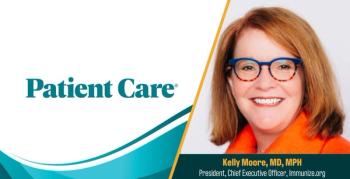
NIH Launches Public-Private Collaborative to Boost Global COVID-19 Response
To speed progress toward COVID-19 preventives and treatments, health agencies and leading pharmaceutical companies will contribute expertise, infrastructure, and funding.
The National Institutes of Health (NIH) today announced a broad public-private partnership of health agencies and leading biopharmaceutical companies to accelerate response to the COVID-19 pandemic, according to a
The planned Accelerating COVID-19 Therapeutic Interventions and Vaccines (ACTIV) partnership, which is being co-led by the Foundation for the NIH (FNIH), will combine the expertise of more than a dozen international pharmaceutical companies (see below) and
- The Health and Human Services Office of the Assistant Secretary for Preparedness and Response
- The Centers for Disease Control and Prevention
- The U.S. Food and Drug Administration
- The European Medicines Agency
“We need to bring the full power of the biomedical research enterprise to bear on this crisis,” said NIH Director Francis S. Collins, MD, PhD, in the NIH press release “Now is the time to come together with unassailable objectivity to swiftly advance the development of the most promising vaccine and therapeutic candidates that can help end the COVID-19 global pandemic.”
The ACTIV partnership will focus on developing a framework to prioritize vaccine and drug candidates, streamline clinical trials, and coordinate regulatory processes and/or leverage assets among all partners to accelerate response to the COVID-19 pandemic and to pandemics in the future.
Coordinated by the FNIH, ACTIV partners will provide infrastructure, topical expertise and/or funding to move the most promising vaccine and treatment candidates into clinical trials. Pharmaceutical partners will contribute prioritized compounds, some of which have already cleared early phases of development, as well as data associated with the research related to COVID-19.
Global response to global threat
“COVID-19 is the most significant global health challenge of our lifetime, and it will take all of us working together as a global community to put an end to this pandemic,” said Paul Stoffels, MD, vice chairman of the executive committee and chief scientific officer, Johnson & Johnson, in the NIH statement. “We will need to harness the best ideas from multiple stakeholders, including governments, regulatory authorities, academia, NGOs and industry to stop COVID-19.”
____________________________________________________________________________
“COVID-19 is the most significant global health challenge of our lifetime, and it will take all of us working together as
a global community to put an end to this pandemic."
____________________________________________________________________________
According to the NIH release there are more than 100 potential COVID-19 preventives and therapeutics.
“Using the most advanced clinical trial methods to rapidly test multiple interventions will help get the answers we need as soon as possible to expedite … approaches to fight COVID-19,” said FDA Commissioner Stephen M. Hahn, MD in the press release. “Collaboration is a critical ingredient for success and the FDA will continue to use every tool possible under our
ACTIV will have 4 fast-track focus areas, each led by a group of senior scientists representing government, industry and academia:
1. Standardize and share preclinical evaluation methods in an open forum that allows for comparison and validation
2. Prioritize and accelerate clinical evaluation of therapeutic candidates with near-term potential
3. Maximize clinical trial capacity and effectiveness by connecting networks of clinical trials to build capacity and capabilities and leverage specialization in different populations and disease stages
4. Advance vaccine development by creating a collaborative framework to share insights into natural immunity and vaccine candidate-induced immune response
“This powerful public-private partnership will focus and expedite R&D activities required to combat COVID-19,” says Maria C. Freire, PhD, president and executive director, FNIH. “Working in lock-step, the public and private sectors will maximize the chances of success and provide a roadmap to pre-emptively manage future threats.”
Newsletter
Enhance your clinical practice with the Patient Care newsletter, offering the latest evidence-based guidelines, diagnostic insights, and treatment strategies for primary care physicians.
































































































































